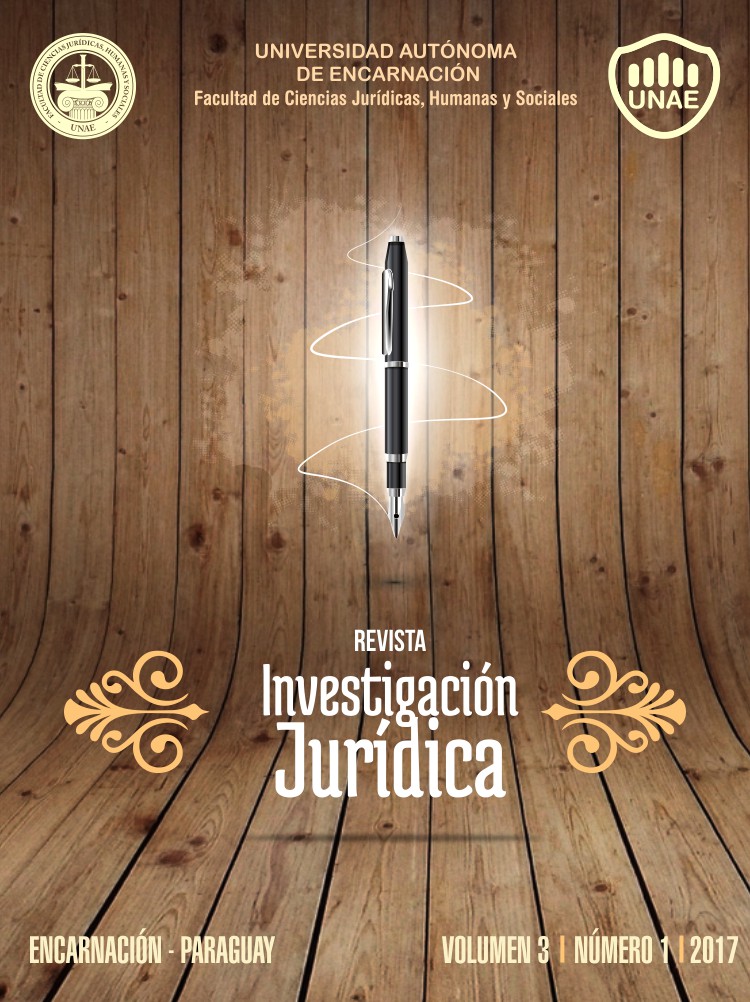THE LEGALIZATION OF SEX WORK
Resumen
The present research aims to approach and provoke the debate on one of the oldest professions in the world, prostitution. Initially, in a brief introduction, it seeks to clarify and define some necessary concepts to a more objective understanding of the subject, and then starting with its most controversial points, drawing interesting parallels between prostitution and other professions in a try to demystify some unfounded discourses and arguments fully of preconceptions, especially when imposed by the moral, social and religious bias. It also brings some examples of countries where the practice was legalized and the benefits that such legalization brought for them. The methodology applied arises from a bibliography analysis through books written by reputable authors over the subject as well as all sorts of materials and instruments available on the Internet. In addition, we bring up news and alternative ways to cope with the prostitution issue in a try to find better solutions for it. Finally, it concludes by discussing the need for the decriminalization of this practice as well as its legalization in order to assure professional rights and guarantees, and also to rescue the human dignity of all those people who work in this kind of profession and who seek some minimum of protection to keep their livelihood without exposing themselves to as many risks.
Keywords: Discrimination. Human Rights. Labor. Law. Sex.
Citas
Abel, G., Fitzgerald, L, & Bruton, C. (2007) The impact of prostitution reform act on the health and safety practices of sex workers. Retrieved from http://www.otago.ac.nz/christchurch/otago018607.pdf.
Agustín, L. (2016) Sex as work & sex work, (pp. 262-277). Retrieved from http://www.commoner.org.uk/wp-content/uploads/2012/02/11-agustin.pdf.
Barnett, L., & Casavant, L. (2011) Prostitution: a review of legislation in selected countries. Retrieved from http://www.lop.parl.gc.ca/content/lop/researchpublications/2011-115-e.pdf.
CBC News. (2013) Supreme Court strikes down Canda´s prostitution laws: Parliament has 1 year to bring in new law as Criminal Code provisions remain in place. Retrieved from http://www.cbc.ca/news/politics/supreme-court-strikes-down-canada-s-prostitution-laws-1.2471572.
Diamond, S. (2014) The phycology of sexuality: why sex is still such a central concern in psychotherapy. Retrieved from https://www.psychologytoday.com/blog/evil-deeds/201405/the-psychology-sexuality.
Figueiredo, R., & Peixoto, M. (2010). Profissionais do sexo e vulnerabilidade, (pp. 196-201). In Boletim do Instituto de Saúde, v. 12, n. 2. São Paulo: Instituto de Saúde. Retrieved from http://www.iesc.ufrj.br/cursos/saudepopnegra/recomendacaoLuisEduardo.pdf.
Freitas, R. S. Bordel, bordéis: negociando identidades. Petrópolis: Vozes, 1985.
Lewis, V., & Larson, J. (2015). Sex slavery: a new look at the world’s oldest profession. Journal of International Business and Cultural Studies, v. 9, p. 1-9. Retrieved from http://www.aabri.com/manuscripts/152219.pdf.
Oltramari, L. C., & Camargo, B. V. (2004) Representações sociais de mulheres profissionais do sexo sobre a AIDS. In Estudos de Psicologia, (pp. 317-323). Retrieved from http://bvsms.saude.gov.br/bvs/is_digital/is_0305/pdfs/IS25(3)088.pdf.
Open Society Foundations. (n.d.) 10 Reasons to decriminalize sex work. Retrieved from https://www.opensocietyfoundations.org/sites/default/files/decriminalize-sex-work-20120713.pdf.
Red de Trabajadoras Sexuales de Latinoamerica y el Caribe. (2017). Carta de presentación. Retrieved from http://www.portalsida.org/repos/Brochure-brasil.pdf.
Silva, K. A. T. (2013). A “luz vermelha” no fim do túnel: sentidos subjetivos do trabalho na prostituição. Lavras – Minas Gerais: Dissertação. Universidade Federal de Lavras - UFLA. Programa de Pós-Graduação em Administração. Retrieved from http://repositorio.ufla.br/handle/1/1243.
Silva, S. X. (2008). As vozes de mulheres profissionais do sexo sobre a legislação do seu trabalho: discurso e gênero. Brasília: Dissertação. Universidade de Brasília – UnB, Programa de Pós-Graduação em Linguística – PPGL. Retrieved from http://repositorio.unb.br/handle/10482/4337.
Trindade, W. R., & Ferreira, M. A. (2008). A sexualidade feminina: questões do cotidiano das mulheres. In Texto e Contexto Enfermagem, (pp. 417-426). Florianópolis, v. 17.
UNAIDS. The legal status of sex work: Key human rights and public health considerations. Briefing note provided by UNAIDS February 2014. Retrieved from http://www.nswp.org/sites/nswp.org/files/sexwork_brief-21feb2014.pdf.
Wagenaar, H., Altink, S, & Amesberger, H. (2013). Final report of the international comparative study of prostitution policy: Austria and the Netherlands. 2013. Retrieved from http://www.ikf.ac.at/pdf/130709_P31_prostitution_policy_report-DEF.pdf.
World Health Organization. (2017). Gender, women and health: what do we mean by “sex” and “gender”? Retrieved from http://apps.who.int/gender/whatisgender/en/.
Descargas
Publicado
Número
Sección
Licencia
La responsabilidad del contenido de los artículos publicados es de competencia exclusiva de los firmantes del artículo y de ninguna manera será atribuible a la Editora o al Comité Editorial de la revista.
Los autores de los artículos son los responsables de la obtención del permiso correspondiente para incluir en su artículo cualquier material publicado en otro lugar. La revista declina cualquier responsabilidad que se derive de la posible falta de permiso en la reproducción de cualquier material.
Los autores ceden a la Revista la propiedad de sus derechos de autor, para que los artículos sean publicados en cualquier forma o medio.
La Revista se reserva todos los derechos de autor y la reproducción de los documentos en otros medios impresos y/o electrónicos que debe estar autorizada por el Editor.

